Brazil elections: Hate crimes reported include a murder and a swastika attack
- Published
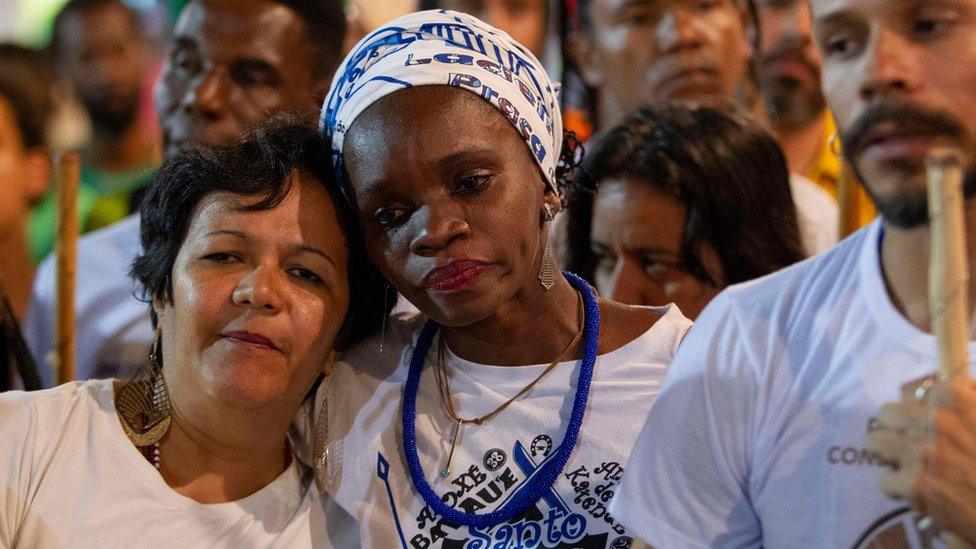
A memorial service was held in Salvador for murdered capoeira master Romualdo Rosário da Costa
Tension ahead of the Brazilian elections has been linked to a string of violent attacks, including one case being treated as political murder, according to local media.
A woman also had a swastika carved into her flesh by supporters of far-right presidential candidate, Jair Bolsonaro.
An impending run-off vote between him and leftist Fernando Haddad is polarising the nation.
Mr Bolsonaro has dismissed the violent attacks as isolated.
AFP news agency has reported several cases of election-related violence, saying supporters of Mr Haddad were particularly targeted.
The Brazilian Association of Investigative Journalism (Abraji) has also registered more than 60 physical attacks on reporters, which took place "in a political, partisan and electoral context".
Mr Bolsonaro is running on a tough-on-crime platform, but his critics say his language - and reputation - incite violence.
He has denied this. "I ask people to stop. But I don't control them," he said. "If a guy wearing one of my T-shirts goes too far, what can I do?"
He said violent attacks have also come from the other side too. He was stabbed at a rally in September and spent time in intensive care.
Far-right politician Jair Bolsonaro has won Brazil's presidential election. But who is he?
Who has been attacked?
Romualdo Rosário da Costa, a 63-year-old master of the Brazilian martial art capoeira, was stabbed to death in a bar in the north-eastern city, Salvador, in the early hours of Monday, just after the first round of the election.
The attacker, Paulo Sérgio Ferreira de Santana, told police his motivations were political. He was angry when Da Costa said he was supporting Mr Bolsonaro's rival, and reportedly went home to pick up a knife, and then returned to the bar to stab the victim 12 times.
The swastika attack was also on Monday. A gang of men attacked a 19-year-old woman in the southern state of Porto Alegre, drawing the symbol onto her skin with a penknife.
The woman - who has not been named - was carrying an LGBT flag and an anti-Bolsonaro sticker, according to Globo news.
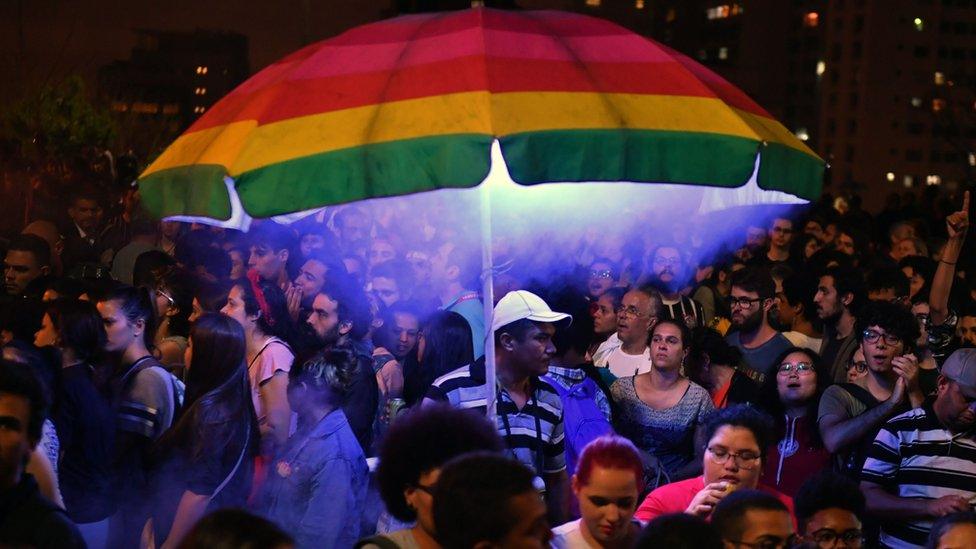
An anti-Bolsonaro protest was held in Sao Paulo on Wednesday
Mr Bolsonaro is known for his homophobic comments, including once saying he would rather have a dead son than a gay son.
Trans singer Julyanna Barbosa was attacked last Saturday in Nova Iguaçu, Rio de Janeiro state. She said her assailants shouted about their support for Mr Bolsonaro, saying "these trash people have to die".
The Guardian reports that football fans have been chanting: "Bolsonaro will kill all queers, external".
How violent is Brazil?
Violence has been rising in the country for some time and it has been a main focus of the election campaign.
Analysts say this is why voters have turned to Mr Bolsonaro.
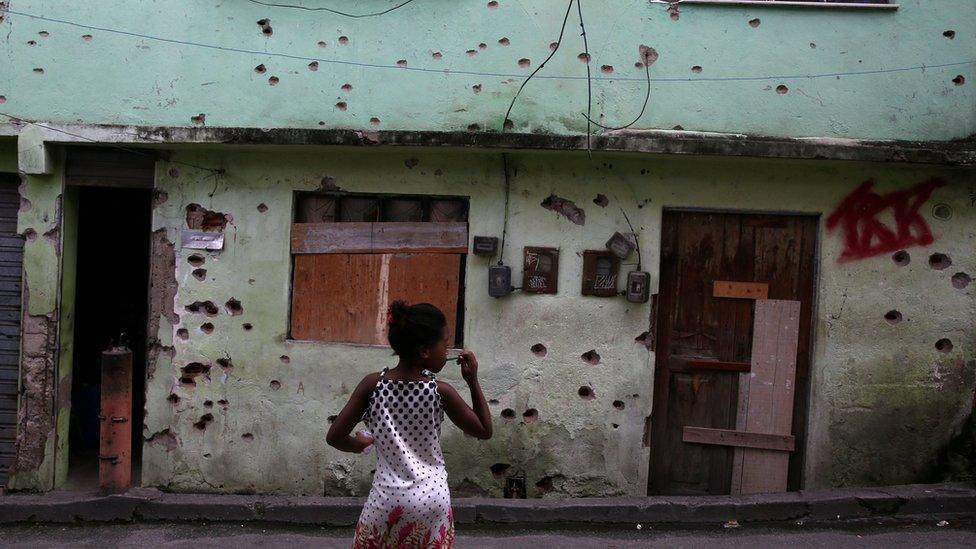
Brazilians fear getting caught in a shoot-out
Gay rights organisation Grupo Gay da Bahia said 2017 was the deadliest year for the country's LGBT community, with 387 killings.
It fears that number could increase further this year as more than 300 people been killed in anti-LGBT hate crimes so far, it says.
Does Mr Bolsonaro promote violence?
The former army captain's law-and-order rhetoric appeals to supporters, but his critics fear it will create more problems.
He has said police should have been allowed to kill criminals more freely, with questions asked later. Those who kill "10, 15 or 20" should get a medal, he said in August.
He also wants to relax gun laws for citizens. In the past, he has said more people should have been killed during the country's dictatorship (1964-1985).
Responding to recent political violence, Mr Haddad said: "We need to sit at the table with the people without guns at their waist".
Mr Bolonaro said he refused to turn into a "peace and love" character to win votes.
Where does it go from here?
Polls suggest Mr Bolsonaro will be elected president after the 28 October run-off.
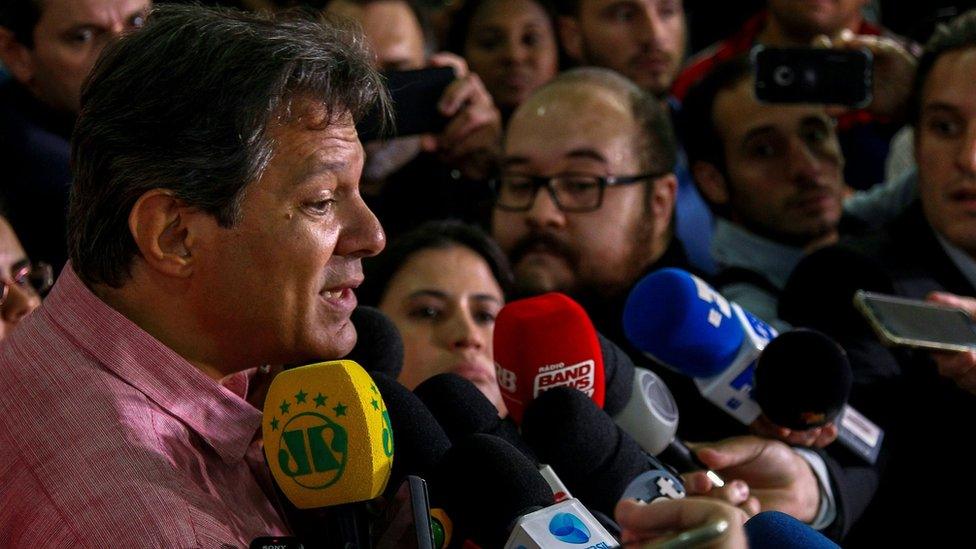
Fernando Haddad is the Workers' Party candidate
The latest estimates from the Datafolha polling organisation put Mr Bolsonaro on 58%, with Mr Haddad trailing on 42%.
Mr Haddad's party, the Workers' Party, is unpopular with many voters after a number of its politicians became embroiled in a corruption scandal.
Rights group Conectas Derechos Humanos says candidates need to "ask their constituents to act in a peaceful and tolerant manner".
- Published29 October 2018
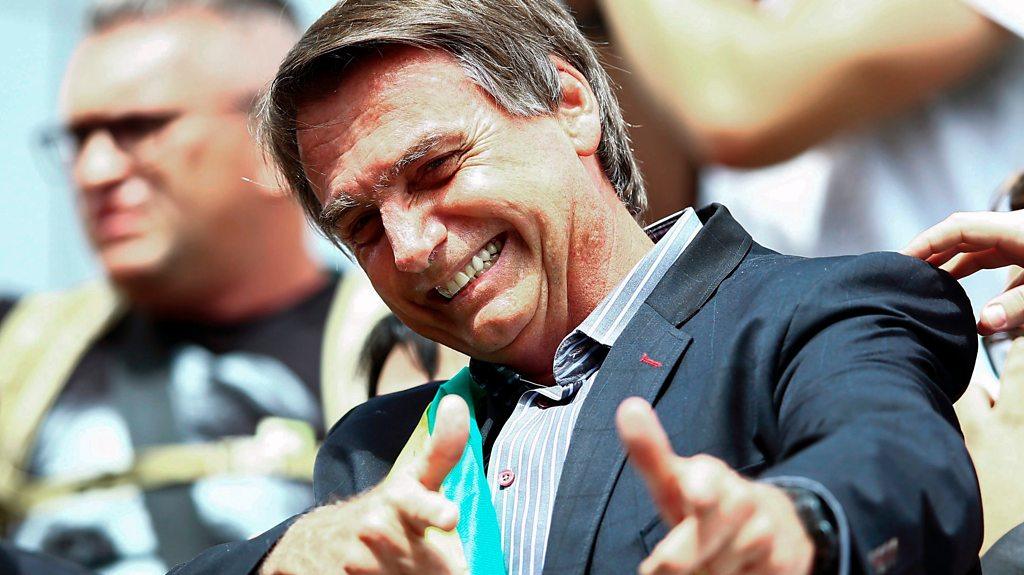
- Published6 October 2018
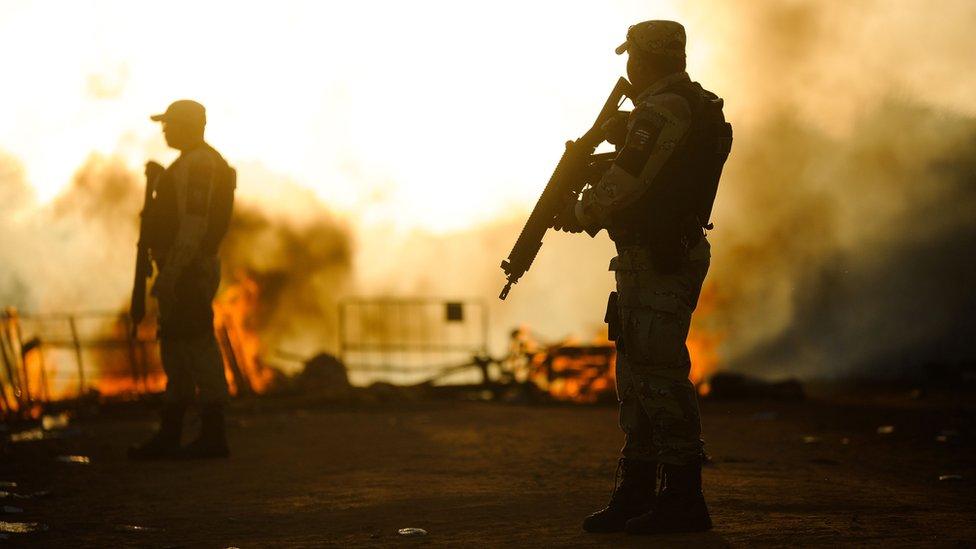
- Published31 December 2018
